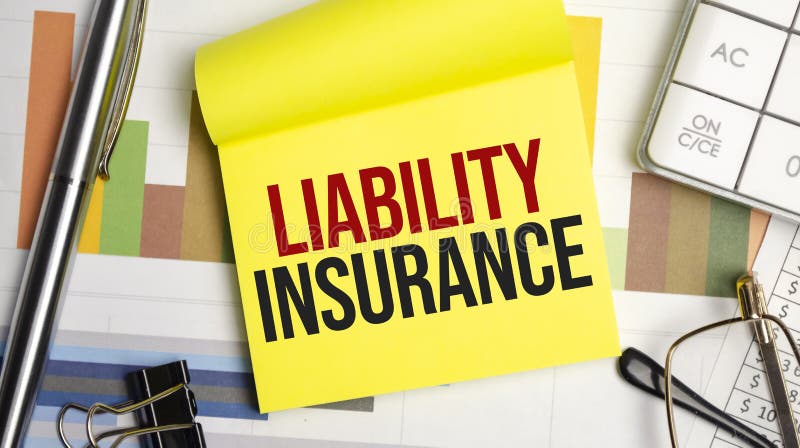In today’s fast-paced and unpredictable business environment, protecting your company from potential risks is more crucial than ever. One of the most effective ways businesses manage these risks is through excess liability protection. This type of insurance provides an additional layer of coverage that goes beyond standard liability limits, helping businesses safeguard their assets against unforeseen incidents. In this article, we’ll explore why businesses choose excess liability protection and how it can benefit your organization.
1. Understanding Excess Liability Protection
a. What is Excess Liability Insurance?
Excess liability insurance, often referred to as excess insurance, is designed to provide additional coverage when your primary liability policies—such as general liability or commercial auto insurance—reach their limits. If a claim exceeds the coverage provided by your standard policies, excess liability insurance kicks in, covering the remaining costs.
b. How It Differs from Umbrella Insurance
While both excess liability and umbrella insurance provide additional coverage, they serve slightly different purposes. Excess liability specifically extends the limits of existing policies, whereas umbrella insurance can cover a broader range of liabilities, including some not covered by your primary policies. Understanding these differences can help you make informed decisions about your insurance needs.

2. Comprehensive Protection Against Major Claims
a. Safeguarding Your Assets
One of the primary reasons businesses choose excess liability protection is to safeguard their assets against large claims. In today’s litigious society, a single lawsuit can lead to substantial financial loss. Excess liability insurance provides an extra buffer, ensuring that your business can withstand unexpected legal expenses without jeopardizing your financial stability.
b. Mitigating Financial Risks
With excess liability coverage, businesses can mitigate the financial risks associated with severe incidents. Whether it’s a workplace accident, product liability claim, or property damage, having that additional coverage can prevent significant out-of-pocket expenses that could cripple your operations.
3. Peace of Mind for Business Owners
a. Reducing Stress and Anxiety
Running a business involves navigating countless challenges, and the last thing you want is to be burdened by worries about potential liabilities. Excess liability protection offers peace of mind, allowing business owners to focus on their core operations rather than constantly fearing the financial repercussions of lawsuits.
b. Enhanced Confidence in Decision-Making
When you have robust insurance coverage in place, it enhances your confidence in making strategic business decisions. You can pursue growth opportunities, take calculated risks, and invest in new projects without the constant fear of potential liabilities derailing your plans.
4. Increased Credibility and Client Trust
a. Building Client Confidence
Having excess liability protection in place can significantly enhance your business’s credibility. Clients and partners are more likely to trust a company that demonstrates a commitment to risk management. This trust can lead to stronger business relationships and more opportunities for collaboration.
b. Competitive Advantage
In industries where liability risks are prevalent, carrying excess liability insurance can give you a competitive edge. It shows potential clients that you take your responsibilities seriously and are prepared for any eventuality. This could make the difference when clients are choosing between competitors.

5. Flexibility and Customization
a. Tailored Coverage Options
Excess liability protection is highly customizable, allowing businesses to tailor their coverage to fit their specific needs. Depending on your industry, the nature of your operations, and the level of risk you face, you can select policy limits and coverage options that align with your unique requirements.
b. Scaling with Your Business
As your business grows, so do your risks. Excess liability protection is scalable, meaning you can increase your coverage limits as needed to ensure that your protection keeps pace with your growth and changing circumstances.
6. Cost-Effective Risk Management
a. Affordable Premiums
Excess liability insurance is often more cost-effective than increasing the limits on your primary policies. This makes it an attractive option for businesses looking to enhance their protection without breaking the bank.
b. Saving Money in the Long Run
Investing in excess liability coverage can save your business money in the long run. By mitigating the risk of large claims and potential lawsuits, you can avoid significant out-of-pocket expenses that could impact your cash flow.
7. Coverage for Additional Risks
a. Protection Beyond Standard Policies
Excess liability protection covers more than just typical claims. It can extend to various liabilities that may not be included in your primary policies. This additional layer of coverage can be invaluable in industries with higher risk exposure.
b. Global Coverage Options
If your business operates internationally or has employees traveling abroad, excess liability protection can extend your coverage across borders, providing peace of mind in a global market.
8. How to Choose the Right Excess Liability Protection
a. Assess Your Business Needs
To select the right excess liability coverage, start by assessing your specific business needs. Consider factors such as the nature of your operations, your industry, and the types of risks you face. This assessment will help you determine the appropriate coverage limits and options.
b. Consult with an Insurance Professional
Working with an insurance agent or broker can provide valuable insights into the complexities of excess liability protection. They can help you navigate your options, ensuring you choose a policy that aligns with your business goals and risk tolerance.
Conclusion
In a world where risks are ever-present, excess liability protection offers businesses a crucial safety net. With comprehensive coverage, peace of mind, and increased credibility, it’s an investment that can protect your organization from significant financial losses. By understanding the benefits of excess liability protection, you can make informed decisions that strengthen your business’s resilience against unforeseen challenges.
FAQs
- What is the difference between excess liability and umbrella insurance?
Excess liability extends the limits of your existing policies, while umbrella insurance provides broader coverage that can include additional liabilities not covered by primary policies. - Why do businesses need excess liability protection?
It safeguards assets against large claims, mitigates financial risks, and provides peace of mind for business owners. - How much does excess liability insurance cost?
Premiums vary based on factors such as coverage limits and business risks, but it is generally more affordable than raising limits on primary policies. - Can excess liability protection be customized?
Yes, coverage can be tailored to meet the specific needs of your business, allowing you to choose appropriate limits and options. - Is excess liability insurance necessary for small businesses?
While not mandatory, it is highly recommended for small businesses, especially those with significant public exposure or assets to protect. - Does excess liability insurance cover professional liability claims?
No, it does not cover professional liability claims; a separate policy is required for those. - How often should I review my excess liability coverage?
It’s advisable to review your coverage regularly, especially as your business grows or changes, to ensure it remains adequate.
